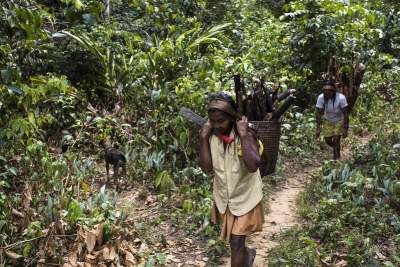New Delhi (IANS) The Food and Agriculture Organization of the United Nations (FAO), together with the Alliance of Bioversity International and The International Center for Tropical Agriculture (CIAT), on Friday released a new study identifying hundreds of diverse plant and animal species that indigenous people around the world, including in India, depend on and care for to generate food sustainably and enhance biodiversity.
The study warned of the increasing threats to these sophisticated food systems.
Nearly 500 million people in more than 90 countries self-identify as indigenous people. Eight indigenous people’s food systems are examined in depth and revealed to be among the most sustainable in the world in terms of efficiency, no waste, seasonality and reciprocity.
They generate hundreds of food items from the environment without depleting natural resources and achieve high levels of self-sufficiency.
In the Solomon Islands, for example, the Melanesians people combine agroforestry, wild food gathering and fishing to generate 70 per cent of their dietary needs, the study said.
In Finland’s Arctic region, through fishing, hunting and herding, the Inari Sami people generate 75 per cent of the protein they consume.
Today these systems are at high risk from climate change, major infrastructure projects, and the granting of concessions that allow mining, commercial agriculture and logging companies to operate on indigenous people’s territories.
The new report represents collaborative work and field research with indigenous people’s organisations and research centres across the world.
Its authors emphasise the urgent need for governments and the international community to establish and enforce intercultural policies that support the efforts of the indigenous people to protect their food systems.
“Despite surviving for centuries, indigenous peoples’ agri-food systems are likely to disappear in the next years due to a number of drivers threatening their future,” highlighted Juan Lucas Restrepo, Director-General of the Alliance of Bioversity-International and CIAT.
Researchers must listen and learn from them to support efforts to maintain ancestral knowledge, he added.
Indigenous people’s food systems analysed in this publication include those belonging to the Baka people in Cameroon, the Inari Sami people in Finland, the Khasi, Bhotia and Anwal peoples in India, the Melanesians people in the Solomon Islands, the Kel Tamasheq people in Mali, the Tikuna, Cocama and Yagua peoples in Colombia, and the Maya Ch’orti’ in Guatemala.
These varied and unique systems combine different food generation techniques like hunting, gathering, fishing, pastoralism and shifting cultivation. Mobile practices, including nomadism, are vital to link food generation and production activities to natural cycles in a resilient way.
Developed over millennia by the indigenous people, such traditions enable habitats to recover and allow ecosystems to replenish themselves and provide fresh, nutritious and diverse foods.
“Indigenous peoples’ food systems are game changers if acknowledged and protected as recent studies have also shown that in several areas zero hunger has been achieved,” said Phrang Roy, Founding Chair of NESFAS, based in Shillong.

